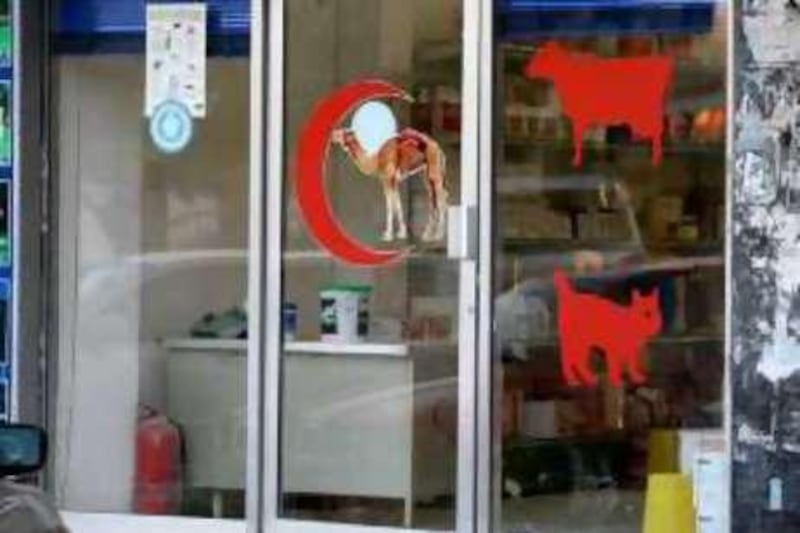AL AIN // Unauthorised staff at some of the city's veterinary pharmacies have been spaying and neutering pets on makeshift operating tables, causing permanent damage and sometimes death to the animals. The National found pharmacists willing to spay a female cat at four of 11 such establishments in a row along Al Surooj Street, near central Al Ain. In addition to lacking a licence to perform such procedures, the pharmacies also lacked sterile facilities.
One of the willing pharmacists, who said he would perform the operation for Dh125 (US$34), pointed to a metal desk in the corner. "I'll remove the clutter, dust it off, and perform the surgery there," he said. Ziad Ali, the manager at Al Rawda Veterinary Centre, Al Ain's only animal clinic and hospital, said people should only take their pets to licensed veterinarians. He has seen first-hand what happens to animals taken to some of Al Sarooj Street's pharmacies by owners who are either trying to save money or do not know better.
"Some [animals] died as a result," said Mr Ali. "On many occasions, pet owners have brought their animals to us with severe infections that required hospitalisation. When our veterinarians asked them where they had the surgeries performed, they told us one of the pharmacies on Al Sarooj Street." A veterinarian at Al Nawdir for Veterinary Medicine and Equipment, one of the pharmacies that would not perform the spaying procedure, explained that the surgeries were being done as a way to sell medications to the animal's owners.
"They are doing this for sales," said Mohammed al Nakeep. "What's used in the procedure depends on what the surgery involves. "By sending pet owners away to a veterinarian, they are losing the sale of the products that are going to be used in the surgery and the cost of the surgery itself." One pharmacist who offered to conduct the procedure later admitted doing so would have been illegal. The pharmacy was not registered as a clinic by the Ministry of Environment and Water, and he did not have a license to practice veterinary medicine.
"I graduated from veterinary school in 1993 in Egypt, but couldn't get a license as a veterinary doctor in the UAE because of the high standards in place here," he said. "I shouldn't have said I would do the surgery." Performing any medical procedure in a store is illegal and can result in the business being fined, said Hassan al Kaabi, Al Ain Municipality's chief public health inspector. "The business has to be licensed as a veterinary clinic with a proper place for surgeries," Mr al Kaabi said. "Performing surgeries in public areas is a health risk to the public, and illegal."
A spokesman for the Ministry of Environment and Water, which oversees veterinary establishments, said they can be licensed three ways: as a pharmacy, as a supplier of veterinary products to pharmacies, or as a clinic or hospital. "For a veterinarian to be licensed, he has to have a minimum of five years experience and pass the Ministry's examinations," said the spokesman. "For a clinic to be licensed, it has to have one veterinarian and the equipment and facilities to perform veterinary procedures."
Any pharmacist caught doing veterinary work during random Government inspections faces large fines and having their business license suspended, said the Ministry staffer. ealghalib@thenational.ae






